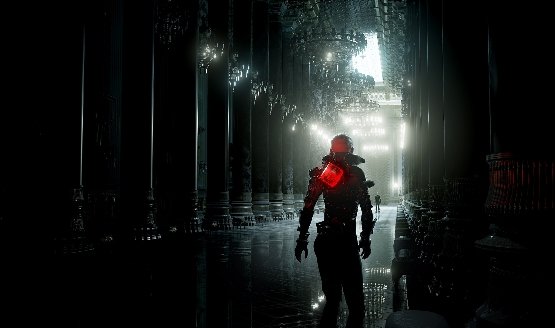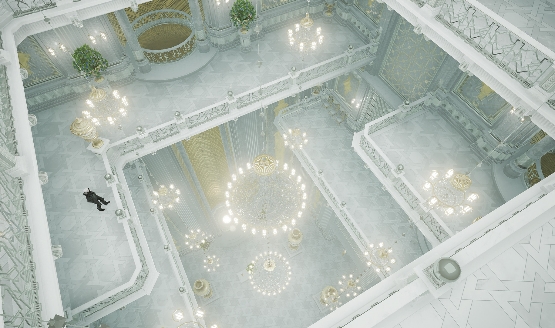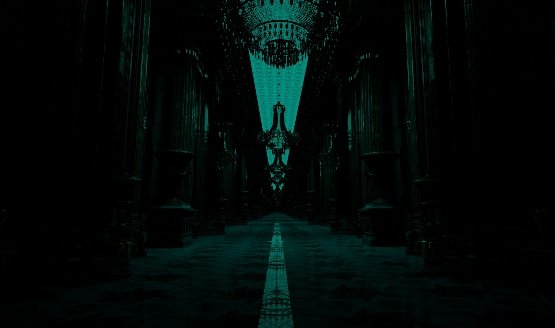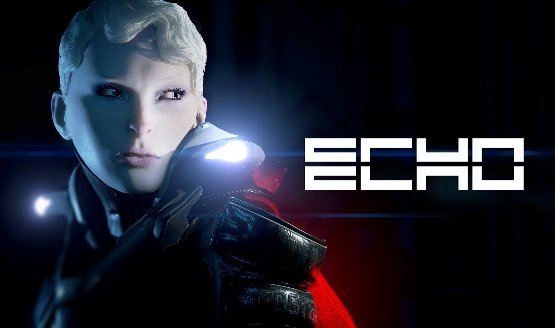A couple of years ago some former employees of developer IO Interactive (think Kane & Lynch and the Hitman franchises) decided to take a huge gamble by starting their own studio, known as Ultra Ultra, and started work on a brand new game called Echo. They started out with only two people, but now they are a team of eight and their game is set to launch on September 19th. I was invited to sit down with Martin Emborg, one of the key founders of Ultra Ultra, as he gave me a guided walk through of his game and answered any questions I threw his way.
Here’s how Ultra Ultra describes their game:
Introducing En, a callow space traveler who, after a century in stasis, arrives at her destination: A Palace born of legend, a marvel of an ancient civilization eons gone, still awaiting its first human occupants. Out here, using forgotten technology, En hopes to bring back a life that should not have been lost…
A character-driven story of introspection and discovery, ECHO quickly develops into something much more unsettling. Stepping into the shoes of En, it becomes clear that The Palace itself studies everything you are, everything that you do; in order to use it against you.
The Palace creates ‘Echoes’, with the sole purpose of destroying you. The game will shift and change as you do, constantly evolving its Echoes based your actions – If you sneak, they will get stealthier. If you shoot, they will start to shoot back.
Your only respite lies in the sanctuary of a Blackout. As The Palace shuts down in order to update its deadly copies of En, you have a small window of opportunity to act without consequence. But beware, when The Palace comes back online, your pursuers will now be even more relentless.
The enemy is you.
Before jumping into the gameplay, Martin said that what I would see was a couple hours into the story and is the action/strategy based portion of the game. The first part of the game, which I didn’t see but am looking forward too, is presented in an exploration style game. Martin explained that they wanted to create a relationship between the player and the protagonist so that the player would feel more invested in that character and the Palace itself.

Watching Martin play through the game revealed how every gameplay experience was unique to that player, as the Palace AI would replicate his moves and patterns exactly. It’s almost unsettling to see a perfectly duplicated character doing exactly what you did just moments ago. I found myself trying to take mental notes of his every move so as to know where the bad guys would be located after the next blackout. Even the take-downs are learned by the AI, so going stealthily through an area and utilizing a sneaky take-down just means the AI will be doing that to you the first chance it gets.
What was really interesting was the fact that, even though Martin has not only helped build the game but also played the game from creation, there were times that the AI surprised him. He knew, of course, to never use his gun unless the lights were out, but he did sneak up on a couple of clones and send them to nap time. The AI, always watching and always learning, returned the favor later on in the level, startling him in the process.

Honestly, I expected Martin to ace his way through every level and encounter, being how it was his creation, but obviously the game was created to be always changing and always adapting to your play style so even veterans of it can struggle at times. There-in lies the difference between this game and games like Hitman or Deus Ex. The AI can turn yourself into either your own worst enemy, or your best ally. The question you have to ask is, “Is the AI really doing that or is it just you doing it to yourself?”
The game was created using the latest Unreal Engine, so it looked great on the laptop it was running on. Martin did say that they ran into some issues within the blackout mode with the engine. Shadows and lighting within that mode had to be addressed in-house so really, the game is running on a modified version of the latest Unreal Engine. The game looked great and ran smooth, and Martin said that what we saw on his laptop will be comparable to what we will see on our PS4. He couldn’t say if there were any PS4 Pro enhancements, so we will have to keep an eye on that once the game is out.

Echo was originally created as a game that would learn and never forget what it learned. This turned out to be a very punishing and hard game to play, so they reworked the AI so that it only remembers things from the level you are on. Once you’ve beat the game, though, there is a legacy mode unlocked that almost returns the game to its original state. It can only remember back a couple of levels or so, but it still promises to give you an experience that sounds very trying and almost impossible. This should enhance the replay value nicely.
Echo is out next week on Steam (the PS4 release is set to release shortly afterward) and looks to be a unique experience worthy of your time and money. Stay tuned for our full review at a later date.








